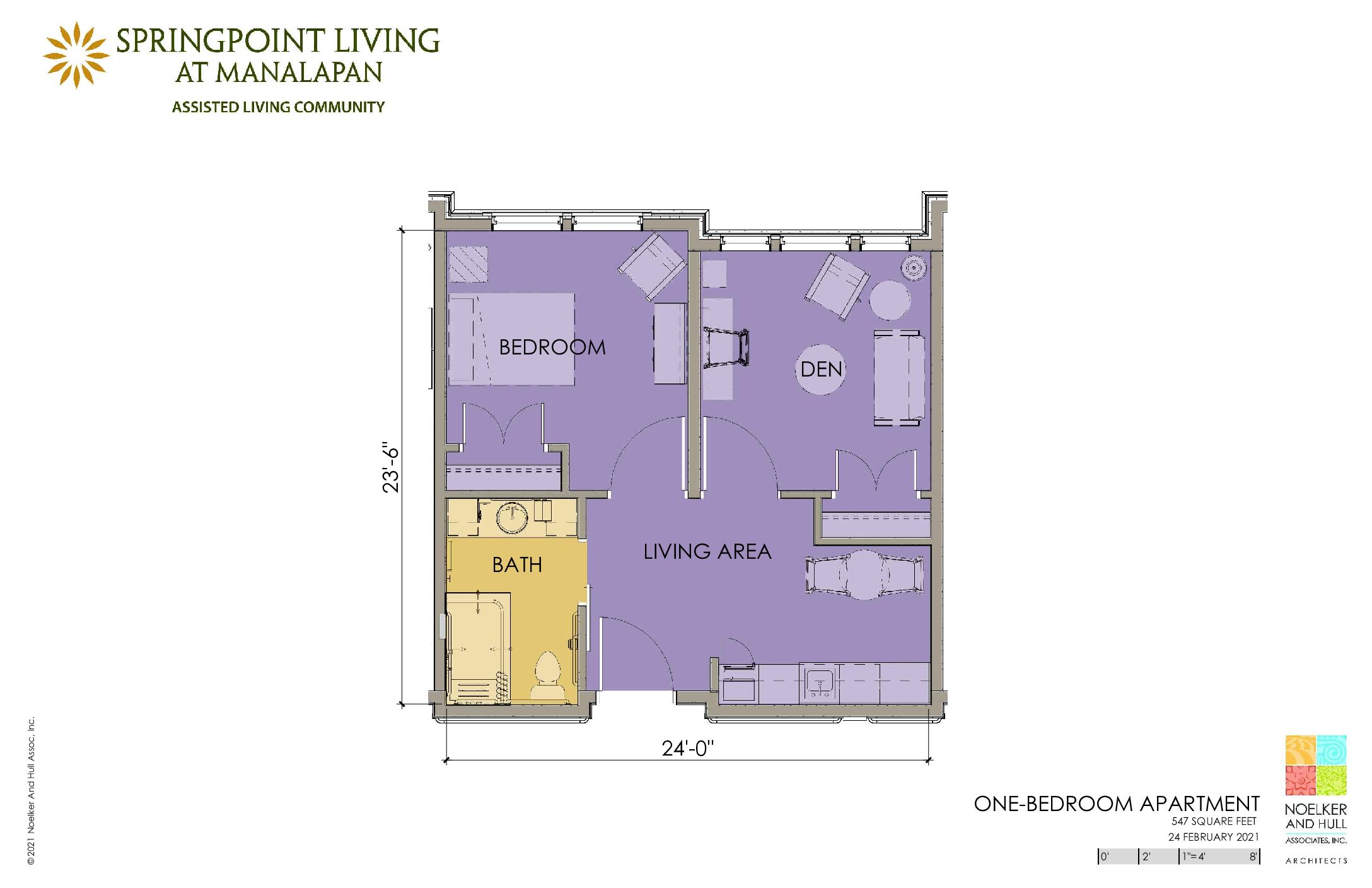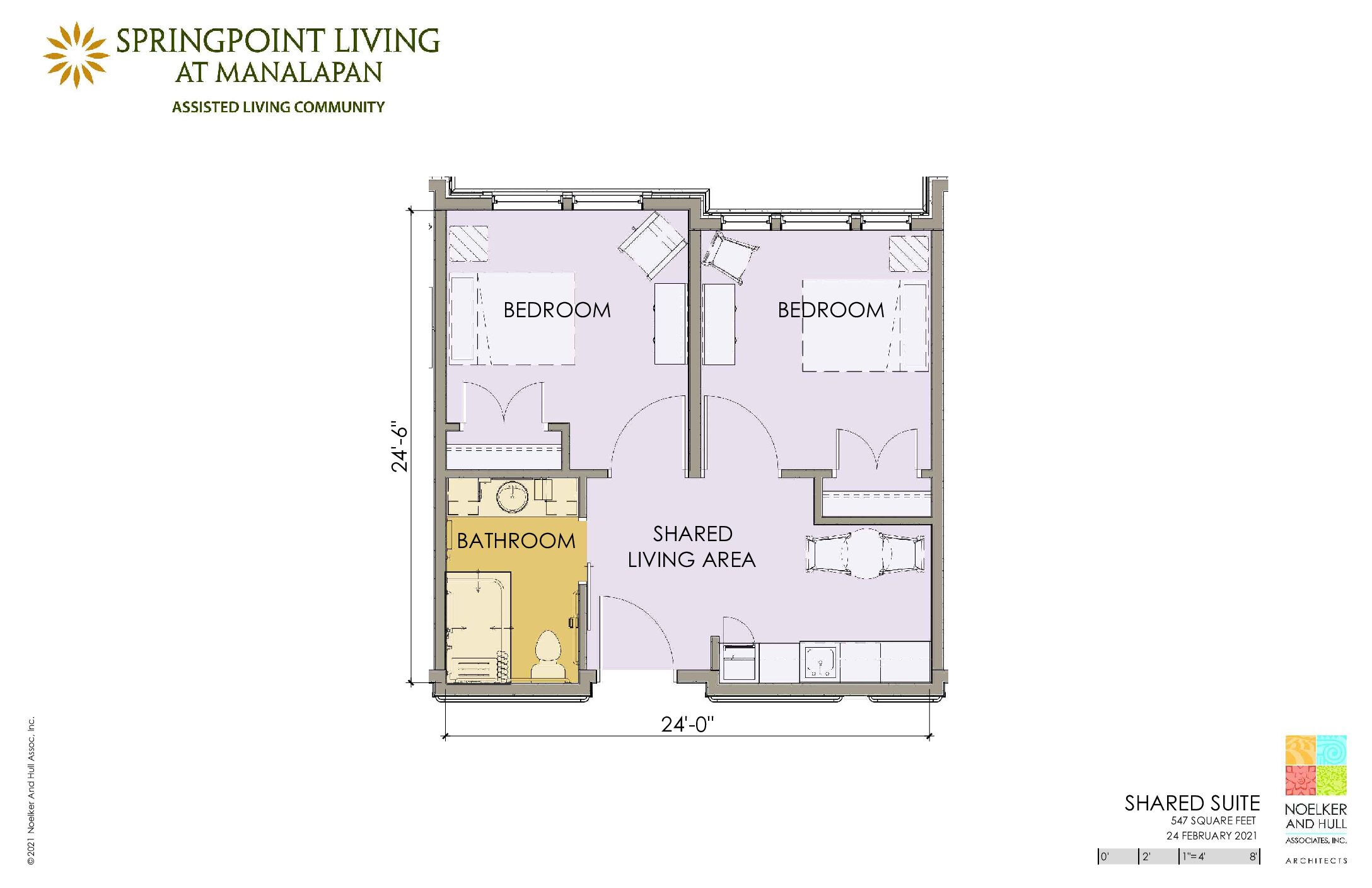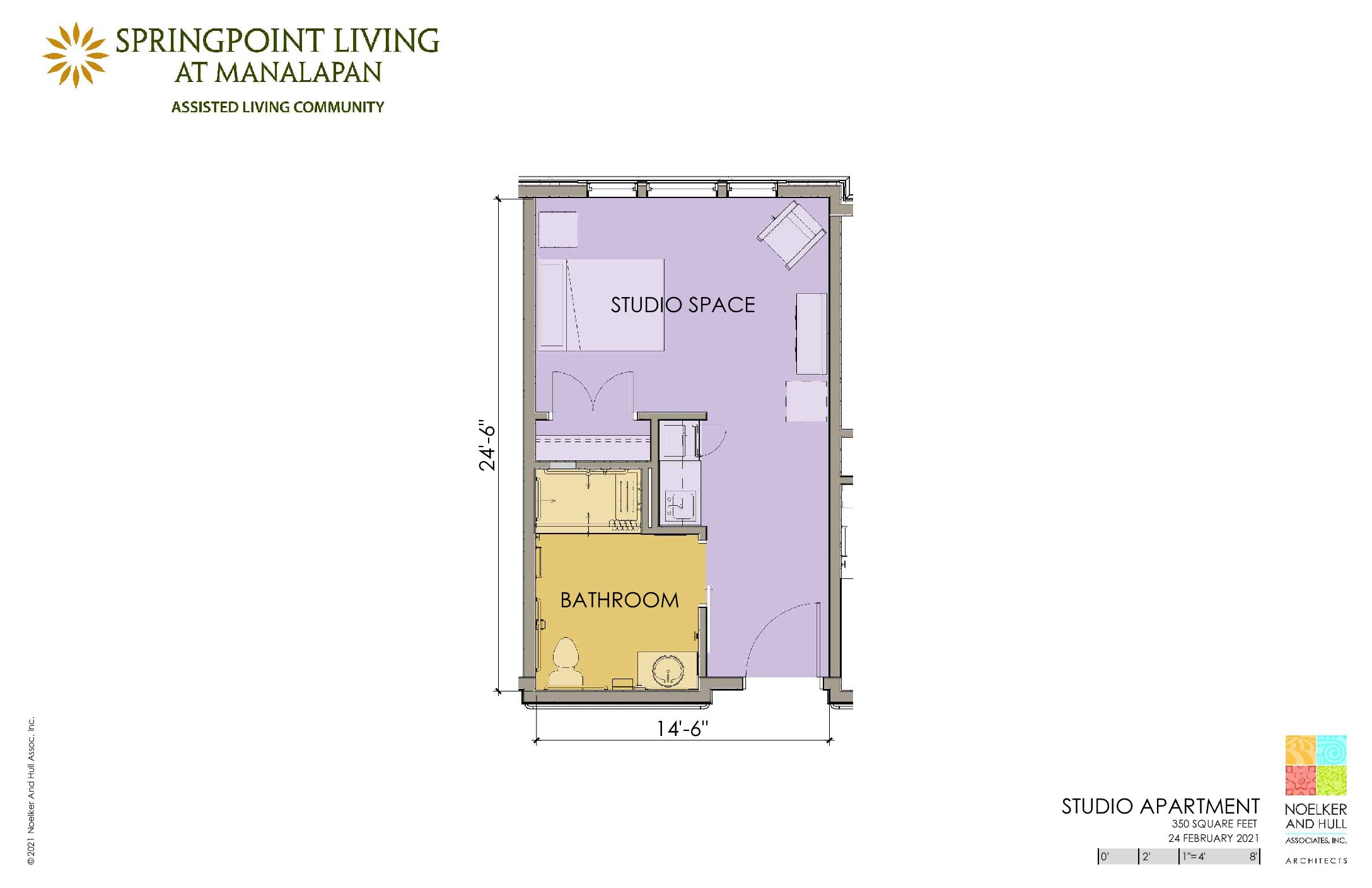Unique, Person-Centered Care
Assisted Living with Purpose


Customized Daily
Support

Holistic Wellness
Programming

Maintenance-
Free Lifestyle

Our Assisted Living Approach
Finding Your Perfect Home
Each senior living floor plan offers comfort and accessibility tailored to your loved one's preferences, creating a welcoming space they'll truly enjoy calling home.






Frequently Asked Questions: Assisted Living
The difference between assisted living and independent living is the amount of daily support needed by the individual:
- Assisted living is designed for seniors who are mostly independent but require some assistance with Activities of Daily Living, such as bathing, dressing, or medication management.
- Independent living is designed for older adults who do not require daily assistance but want the convenience of maintenance-free living, dining options, and social engagement within a senior living community.
Both options promote active, fulfilling lifestyles, but assisted living adds personalized care and support when needed.
The difference between assisted living and memory care is the level of care provided and the needs that are addressed:
- Assisted living is designed for seniors who need some help with daily tasks but are able to maintain a relatively independent lifestyle and a flexible schedule.
- Memory care is designed for seniors with cognitive conditions like Alzheimer’s or other forms of dementia who require a higher level of care and supervision. Residents in memory care follow a structured daily routine in a secure, calm setting that enhances their safety, engagement, and overall well-being.
At Springpoint Living at Manalapan, assisted living residents enjoy a vibrant and connected lifestyle with personalized support for daily living activities through our exclusive LivWell wellness program. Each resident receives an individualized care plan designed to meet their specific needs while promoting independence and dignity. Care is provided discreetly in private or semi-private apartments, ensuring comfort and privacy. Residents also enjoy full access to community amenities and activities, which includes enriching culinary experiences, therapeutic horticulture, creative arts, educational classes, and more.
If higher levels of care are needed, Springpoint Living at Manalapan offers a Lifecare plan through Springpoint’s network of communities that provides financial protection and guaranteed access to additional care options. With a one-time optional Lifecare fee, residents secure a stable rate at our nearby sister community – Village Point Rehabilitation & Healthcare – or any other Springpoint community.
This means monthly payments remain similar to what residents pay at Springpoint Living at Manalapan, even as care needs increase. The Lifecare plan helps protect against rising healthcare costs, offering peace of mind and long-term security for both residents and their families.
Contact Springpoint Living at Manalapan
Each journey begins with a single step. At Springpoint Living at Manalapan, we are here to answer questions and address concerns about the senior living experience in Manalapan, NJ. Contact us today to discover how our assisted living and memory care services can bring peace to your family.
Have questions or want to learn more?
Fill out the form below, and a member of our team will be in touch soon.
"*" indicates required fields